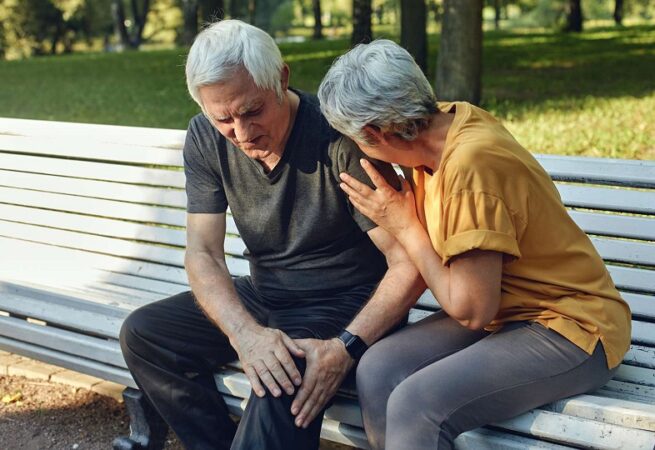

Aging Gracefully Maintaining Vitality and Independence in Later Years
Aging is an inevitable part of life, influenced by various biological, psychological, and social factors. Each aspect plays a crucial role in how individuals experience their senior years.
Biological Factors of Aging
The biological aspect of aging involves changes in cellular and molecular structures. Key factors include:
- Genetic predispositions
- Decline in cellular function
- Hormonal changes
Psychological Aspects of Aging
Psychologically, aging can affect mental health, cognitive abilities, and emotional well-being. Important considerations are:
- Adaptation to change
- Cognitive decline
- Emotional resilience
Social Influences on Aging
Social factors significantly impact the quality of life as one ages. These include:
- The role of family and community support
- Socioeconomic status
- Cultural attitudes towards aging
Nutrition and Diet for Seniors
Essential Nutrients for Older Adults
As individuals age, their nutritional needs evolve, making it crucial to focus on essential nutrients that support bone health, immune function, and energy levels. Key nutrients include calcium, vitamin D, magnesium, and omega-3 fatty acids. A balanced diet rich in fruits, vegetables, lean proteins, and whole grains can help meet these needs.
Hydration and Its Importance
Hydration is vital for maintaining health in older adults, as dehydration can lead to serious complications such as urinary tract infections, kidney stones, and even hospitalization. Seniors should aim to consume at least eight glasses of water daily, alongside other hydrating fluids like herbal teas and clear soups.
Dietary Adjustments for Aging Bodies
As the body ages, its ability to digest and metabolize food changes, necessitating dietary adjustments. Reducing sodium intake can help manage blood pressure, while increasing fiber can aid in digestion. It’s also beneficial to have smaller, more frequent meals to maintain energy levels throughout the day.
Physical Activity and Exercise
Engaging in regular physical activity is crucial for seniors aiming to maintain their vitality and independence. Exercise tailored to the capabilities and needs of older adults can significantly enhance their overall health and well-being.
Safe Exercise Routines for Seniors
Creating a safe exercise routine involves understanding the physical limitations and health status of the elderly. It’s essential to consult healthcare providers to tailor activities that are both safe and effective. Low-impact exercises such as walking, swimming, and yoga are often recommended to minimize the risk of injury.
Benefits of Regular Physical Activity
Regular physical activity can lead to numerous health benefits, including improved strength, better balance, and increased flexibility. These improvements can help prevent falls, a common concern among the elderly. Additionally, exercise contributes to better cardiovascular health and can aid in weight management.
Overcoming Barriers to Exercise
Many seniors face barriers to regular exercise, including physical limitations, lack of motivation, or absence of accessible facilities. Overcoming these barriers often requires support from community programs, family, and friends. Encouraging participation in group activities can also provide the necessary motivation and make exercise a more enjoyable and social experience.
Mental Health and Emotional Well-being
As individuals age, maintaining mental health and emotional well-being becomes as crucial as physical health. The challenges of aging can often lead to feelings of loneliness and isolation, but there are effective strategies to cope and maintain a healthy mental state.
Coping with Loneliness and Isolation
Older adults can combat loneliness by staying connected with family and friends, engaging in social activities, and possibly adopting a pet. Technology can also play a role in bridging the gap, allowing for video calls and social media interactions that keep seniors connected to their loved ones.
Maintaining Cognitive Function
To keep the mind sharp, seniors are encouraged to engage in mentally stimulating activities such as reading, solving puzzles, or learning new skills. Regular social interaction and physical exercise also contribute significantly to cognitive health.
Stress Management Techniques for the Elderly
Managing stress is vital for emotional well-being. Techniques such as mindfulness, meditation, and regular physical activity can help reduce stress levels. Additionally, seniors should be encouraged to seek professional help if they find stress unmanageable, ensuring they have the support needed to maintain their mental health.
Healthcare and Regular Check-ups
As individuals age, maintaining optimal health becomes a paramount concern. Regular medical screenings are essential for early detection and management of age-related conditions. Seniors are encouraged to schedule consistent check-ups to monitor heart health, bone density, vision, and hearing among other vital functions. These screenings can prevent complications and enhance the quality of life.
Navigating health insurance in later years can be challenging. It is crucial for seniors to understand their coverage options and the benefits available to them. Assistance from family members or professional advisors can be invaluable in managing health insurance plans and ensuring that they align with the seniors’ health needs.
Chronic conditions such as diabetes, arthritis, and hypertension are prevalent among older adults. Managing these conditions requires a comprehensive approach that includes regular medical consultations, medication management, and lifestyle adjustments. Seniors should work closely with their healthcare providers to devise a personalized care plan that addresses their specific health concerns.
Social Connections and Community Engagement
As individuals age, maintaining robust social connections and actively engaging in community activities can significantly enhance their quality of life. These interactions not only ward off feelings of loneliness and isolation but also contribute to mental and physical health.
Building and Maintaining Social Networks
Older adults can keep their social networks vibrant by regularly reaching out to friends and family, participating in group activities, and embracing technology to stay connected. Joining clubs or groups that align with personal interests can provide consistent social interaction and a sense of belonging.
Volunteering and Its Benefits
Volunteering offers a dual benefit for seniors by allowing them to give back to the community while staying active and engaged. It can lead to new friendships, increased self-esteem, and a stronger sense of purpose.
Participating in Community Activities
Engaging in community activities can be a fulfilling way for seniors to stay connected and active. Whether it’s attending local events, taking part in workshops, or joining fitness classes designed for older adults, these activities provide valuable opportunities to interact with peers and maintain an active lifestyle.
Adapting Living Spaces for Safety and Accessibility
As individuals age, the need for a safe and accessible living environment becomes paramount. Adapting living spaces to meet these needs not only enhances comfort but also significantly reduces the risk of accidents and promotes independence.
Home Modifications for Aging in Place
Modifying a home to suit the needs of the elderly can involve several key changes:
- Installation of grab bars in bathrooms and along hallways.
- Ensuring that flooring is slip-resistant to prevent falls.
- Adjusting the height of counters and sinks to accommodate those who may have difficulty bending or standing.
Choosing the Right Assistive Technologies
Selecting appropriate assistive technologies can greatly enhance daily living by:
- Incorporating emergency response systems that can be easily accessed in case of an accident.
- Utilizing voice-activated devices for controlling lights, locks, and other home features.
- Installing stair lifts or elevators for those with limited mobility to navigate multiple floors.
Safety Tips for Elderly Living Alone
For seniors living alone, safety is a critical concern. Some effective strategies include:
- Regularly checking smoke detectors and carbon monoxide alarms to ensure they are functioning properly.
- Keeping a list of emergency contacts readily accessible.
- Organizing and decluttering spaces to avoid tripping hazards.












